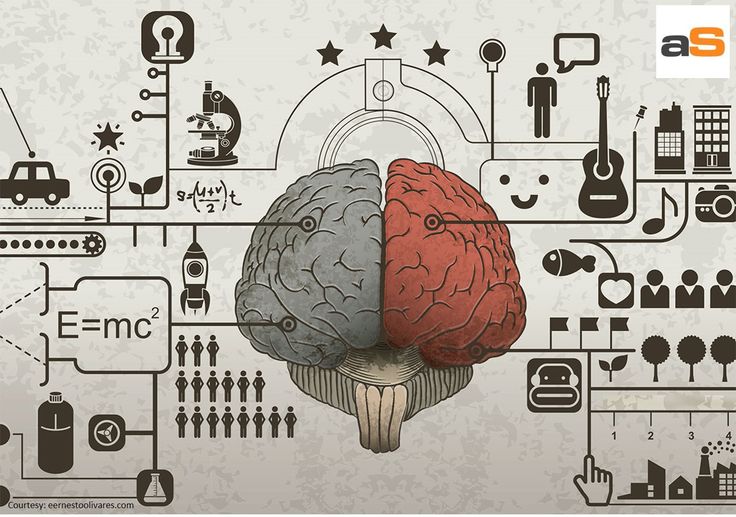In this age of short-form content like Instagram Reels, YouTube Shorts and more. Our attention spans are under constant assault. With notifications, endless scrolling, and the temptation of multitasking, it’s no wonder we often struggle to focus on even the simplest tasks. But you know what? You’re not alone. I was suffering from the same problem for months, but recently, I discovered some amazing advice that truly made a difference for me. . Now, I’m excited to share these tips with you, so stick around!
First of All, I learned all of these methods from a video by Amy Wang. If you prefer watching videos over reading, you can check out her video (link down below). Either way, you will benefit, and that’s what matters most.
If you are reading this, probably you are dealing with the same problem as I did. The craziest part is, you want good grades and you want to improve yourself. But you are making it 10 times harder by canceling out all your hard work. Because study shows that,
“Students with shorter attention span perform worse on tests, struggle to retain information long-term and have a harder time connecting disparate ideas into cohesive understanding” [Research by Santa Maria College]
And It will changes today. A longer attention span makes you more efficient, effective, and smarter, making it far more crucial than any study tips. If you’re truly committed to reaching your full potential and excelling in life, here’s a challenge for you. Patiently read this entire post, take notes if you can, and make an effort to understand every single point. Be determined to implement these strategies. Doing so will be a great first step toward regaining your attention span. Now, let’s get started.
Video Link: “How To Fix Your Attention Span”
Shifting to Golden Mindset: Taking Control In Your Hand
Improving your attention span isn’t just about reducing your time on social media. The first step toward real progress is understanding that blaming technology isn’t the solution, taking accountability is. Once you recognize that technology is designed to enhance your life and offers many benefits, it’s essential to ensure that you’re the one in control, not your devices. There’s a say that,
”You can’t control the wind but you can adjust the sails: It means, It’s not about what happens to you, it’s how you react”
Instead of thinking, “My phone is decreasing my attention span,” shift your mindset to understand that your reactions are what’s truly affecting your focus. Each negative effect is simply a product of how you respond to technology. When your phone buzzes with a notification, remember that you are in control of your reaction. Being in control means you have the power to reclaim your life and become smarter.
“Between stimulus and response lies a space. In that space lies our freedom and power to choose a response. In our response lies our growth and our happiness.” -Steven Covey (The Habits of Highly Effective People).
Now that you’ve taken accountability for your actions, it’s time to ask: what actions should you take? It all comes down to habits. The more you engage in negative behaviors, the more they snowball. But by consciously shifting to good habits, you can start to reverse the trend and improve your attention span. So here are the 8 things to start doing today.
Habit 1: Close Dynamic Tabs to Stay Focused
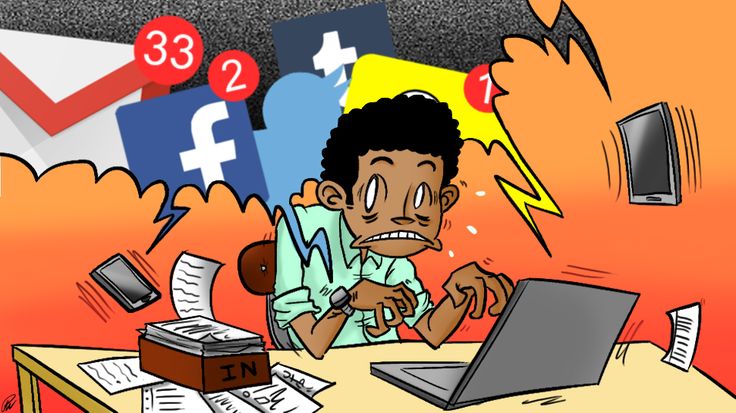
One of the most effective habits to transform your brain and boost your focus is to close dynamic tabs. If you keep tabs open for apps like Facebook Messenger or your email, the constant notifications can be incredibly distracting. Every time a new message comes in and a notification dings, it disrupts your concentration and pulls you away from your current task.
Instead, make it a habit to close these tabs and set specific times to check your messages. And here Amy said, “Personally, I’ve started closing my email tab more often. Even without notifications, just seeing that tab open can tempt me to click it and check for new emails. By minimizing these distractions, you can maintain better focus and productivity throughout the day.”
Habit 2: Minimize Multitasking for Better Focus

Another crucial habit to enhance your brain’s efficiency is to minimize multitasking. For example, if you’re trying to write an important report while answering emails or chatting with others, you might struggle to keep both tasks on track. When you split your attention between different activities, your brain has to constantly switch gears, which can lead to decreased productivity and increased stress.
Even if you consider yourself a multitasking pro, it’s essential to focus on one task at a time. If you catch yourself trying to multitask, take a moment and gently pull yourself back to refocus on just one. By dedicating your time, energy, and attention to a single task, you’ll improve your concentration and overall performance.
Habit 3: Create Phone Free Zones

When you search online for ways to improve your attention span, you’ll come across suggestions like drinking tea, eating brain foods, and exercising. While these tips have their place, they often provide only minimal benefits compared to addressing the biggest distraction of all: “YOUR PHONE”.
To make a real difference, create phone free zones in your life. Avoid bringing your phone into the bedroom, where it can lead to endless scrolling and disrupt your sleep. Leave your phone away from the dinner table to prioritize meaningful interactions with family and friends over the latest celebrity news.
By setting these boundaries, you’ll create a more focused and present environment, helping you regain control over your attention span.
Habit 4: Delay The Distractions: Say “I’ll Do It After [X]”
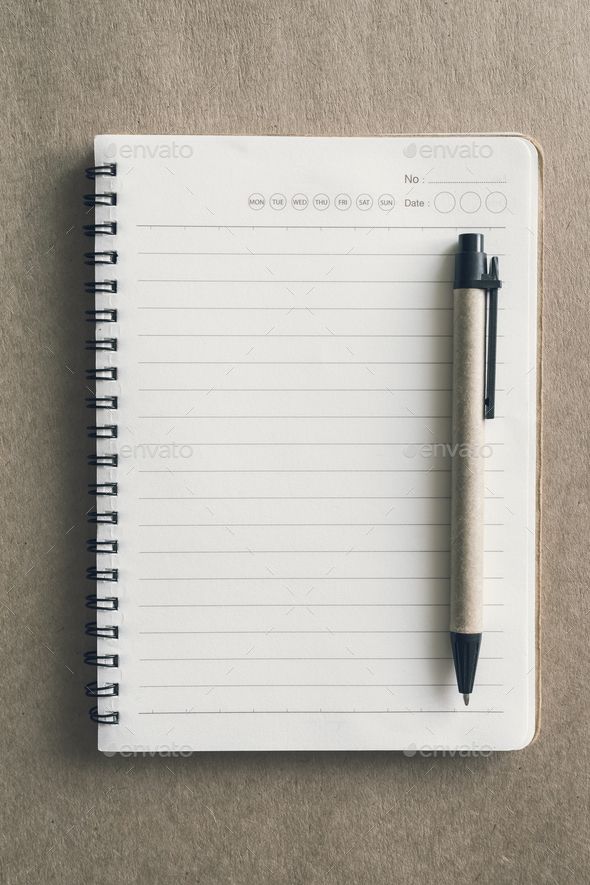
When you’re working, distractions are bound to arise, whether it’s a sudden task that pops into your head or someone asking you to do something. Instead of dropping everything to address these distractions, try this effective habit: write the task down and commit to handling it after you’ve finished what you’re currently doing.
For example, if you’re working on a math assignment and suddenly remember you need to send an email, write down the task on a piece of paper or in a reminder app. Then, tell yourself you’ll send the email after completing a specific part of your assignment, like after finishing problem three and that’s the “X”. This approach not only helps you stay on track but also reinforces the idea that you’re in control of your time.
By delaying distractions, you train yourself to prioritize your current task and prevent interruptions from derailing your focus. Remember, just because you receive a text or see a new video notification doesn’t mean you need to respond or watch it right away. Take control of your time and stay committed to your current goals.
Habit 5: Automate Focus with Technology
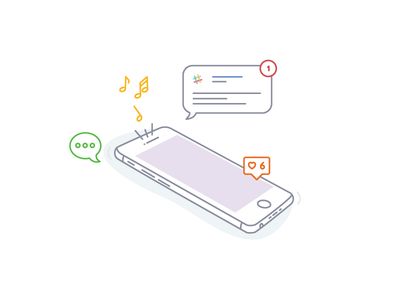
One of the best things about modern technology is its ability to help you stay focused through automation. On devices like the iPhone, you can set up specific times for your phone to automatically switch to Focus mode, which silences notifications during designated work or study hours. Or in Android, similar features are available. You can to set up “Focus Mode,” which pauses distracting apps for a specified period, helping you concentrate on what matters most.
For instance, you can enable a sleep mode that activates an hour before your bedtime, putting your phone on Do Not Disturb automatically, so you’re not distracted by new notifications. This practice is all about setting boundaries, allowing you to maintain focus on your current tasks without being tempted to jump from one activity to the next.
Habit 6: Be Curious Like A Kid

Think about the last time you were waiting in line for a meal or sitting on the public transport. What did you do? Chances are, like most people, you pulled out your phone and started scrolling. It’s a habit born out of boredom, but constantly reaching for your phone during these moments can harm your attention span. It sends a message to your brain that you need constant stimulation, even during the smallest gaps in your day.
But what if you flipped the script? Instead of scrolling, take a moment to look around. Notice what’s happening right in front of you. Maybe the person ahead of you in line is wearing something interesting, or the flowers outside the window look particularly pretty today. If you’re in a car, gaze out the window and appreciate the passing scenery. Or let your mind wander, daydream a little, ponder what you want for dinner, or even reflect on your goals.
By embracing curiosity and allowing yourself to be engaged by the world around you, you not only preserve your attention span but also turn those mundane moments into opportunities for mindfulness and reflection. So next time, resist the urge to pull out your phone, and instead, let your mind explore the world right in front of you.
Habit 7: Consume Long Form Content
Amy divided this part it into 3 levels. Let’s explore it one by one together.
Level 1: Watch Videos At Normal Speed
In this section, Amy mentioned those who are thanking her for making longer video to increase their attention span. And Exactly! So the level one is, Watch any video you choose at its normal speed, without hitting that pesky skip button. I dare you. And thus you’re not just passively consuming content, you’re actively engaging with it. Try it out and see how it feels!
And going up to the next level,
Level 2: Listen to Podcasts

Podcasts are an amazing way to train your attention span. They’re perfect for multitasking, but don’t just let them play in the background. Engage actively! This practice helps you absorb words deeply, which probably makes you a better student as you actually hear what your teacher is talking about instead of just letting the words go in one ear and out. Yes I know podcast are slower and more likely conversational but trust me you will find golden nuggets of wisdom packed with it. So give them your full attention and see how it enhances your focus and learning. Talking about recommendation Amy recommended her podcast, so check out ”Your A+ Life” launched on Spotify. Link down bellow.
Link: “Your A+ Life” (Make sure to give high rating, if you like it :D)
Level 3: Read Books

Level 3 is the ultimate test of dedication: reading a book from cover to cover. Books demand intense focus. Unlike those 2 levels, while reading books, your eyes are glued to the text, and your brain is fully engaged in processing the words. It’s a fantastic way to practice deep concentration. As you practice more and more of these, remember to prioritize the type of content. Read valuable content and let that dedication spill over into other areas of your life.
- 7 Habits of Highly Effective People
- Influence Is Your Superpower
- The Subtle Art Of Not Giving A ****
- Atomic Habit (This one is my recommendation :D)
Habit 8: Absorb, Don’t Skim
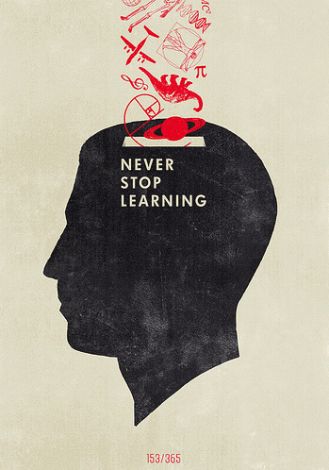
Let’s be real, how often do you find yourself scrolling through TikTok, barely giving each video two seconds before deciding to swipe away? It’s almost second nature, right? But here’s the thing: if your feed is packed with study tips, skincare advice, or other helpful content, and you’re actually watching these videos all the way through, fully absorbing the information—then you’re doing something great for your attention span!
It’s not just about what you consume, but how you consume it. Engage deeply and actively with the content, no matter what it is. Even you can do this by leaving thoughtful, detailed comments that show how much you’ve internalized the advice. This practice not only helps you remember and apply the information but also reinforces it within your own knowledge base.
And here’s the kicker: when you summarize a video and post your thoughts in the comments, it’s like you’re creating your own mini YouTube video! Just like Amy reflects and synthesizes information to create valuable content, you’re doing the same when you share your insights. This process of engaging, reflecting, and sharing not only helps others but also solidifies that knowledge within yourself. Each time you do this, you’re building a stronger, more focused version of yourself.
Conclusion
Having a short attention span means you might not be fully living life to its fullest. Imagine this: a sunset with a loved one, your graduation day, or landing your first job. These are moments that deserve your full attention. When you’re distracted, you’re missing out on the richness and beauty of these experiences.

Instead of viewing attention span as just another thing to fix, think of it as a tool to enhance your life. Being fully present means diving deep into whatever you’re doing. Whether you’re enjoying a leisurely moment or tackling a new challenge, commit to being all in.
Remember, the greatest moments in life are not fleeting; they’re deep and profound. So, implement the tips shared to help you stay present and appreciate those moments more fully.
“The great things In our life are not short. They are deep”
Take Action: Choose one or two habits from the list and start practicing them this week. Don’t overwhelm yourself by trying to tackle everything at once. Focus on making a couple of these habits part of your routine. It’s all about those small, decisive actions that lead to lasting change. You have the power to control how you respond to life’s distractions. You’re in the driver’s seat, it’s time to start acting like it.
“It is not in our control to have everything turn out exactly as we want, but it is in our control to control how we respond to what happens” – Epicteus (Stoic philosopher)
Thank you for tuning in! Make sure to check out her youtube channel, and podcasts. Let me know your thoughts an Let’s continue this journey together. Peace out!

